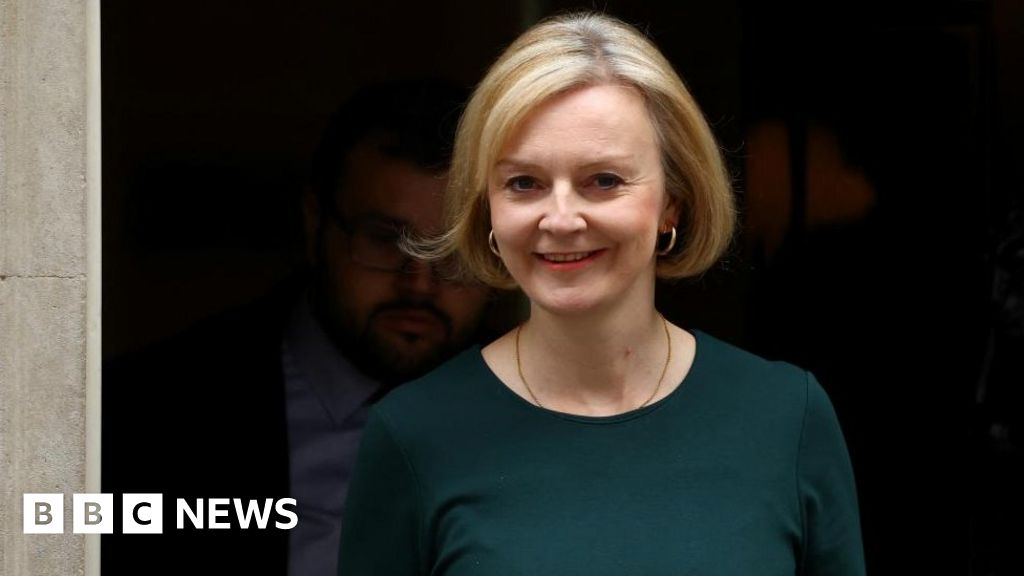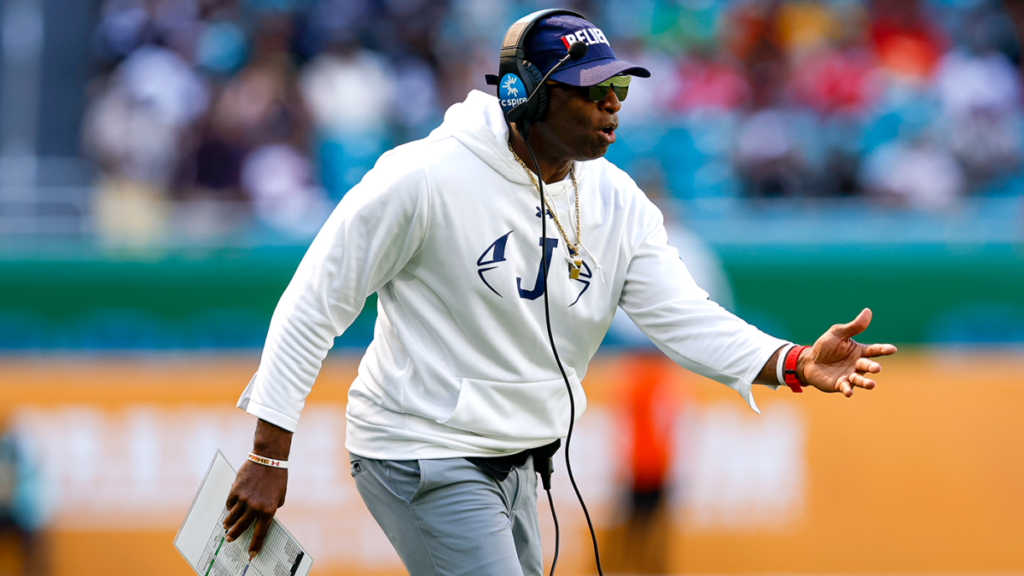 Is the turmoil Liz Truss’s fault? Published
Is the turmoil Liz Truss’s fault? Published
10 hours ago
Image source, PA Media By Reality Check team BBC News The government has been defending its mini-budget, following days of turmoil on the markets, a fall in the value of the pound and rises in the cost of UK government borrowing and mortgage rates.
At Prime Minister’s Questions, Liz Truss was asked what she would say to first-time homebuyers who had had their mortgage offers withdrawn because of rising interest rates, following the mini-budget of 23 September.
The prime minister said: “We are seeing interest rates rising globally – in the face of Putin’s appalling war in Ukraine.”
Business Secretary Jacob Rees-Mogg was asked on the BBC’s Today programme why there had been “a shock to investor confidence” after the mini-budget (which included £45bn of unfunded tax cuts).
Mr Rees-Mogg said: “It’s much more to do with interest rates…than it is to do with a minor part of fiscal policy.”
So, what has been going on?
Global interest rates It is true that interest rates have been rising around the world as central banks, including the Bank of England (BoE), tried to control inflation, made worse by Russia’s invasion of Ukraine and the energy price shock which followed.
On 22 September, the BoE announced it was increasing the UK’s base rate by 0.5 percentage points, to 2.25%.This is the interest rate on which commercial banks base the amount you pay for borrowing money, and what banks pay you for saving money with them.
The day before, the US central bank had raised its interest rates by more – 0.75 percentage points to between 3% and 3.25% .
Following the BoE’s decision, the UK government’s long-term borrowing costs – the interest rate the government has to pay to borrow money on the international markets – rose immediately.By the BoE’s own analysis, long-term gilt yields were 0.2 percentage points higher at the end of the day as compared with the start.
Government’s mini-budget The next day – 23 September – Chancellor Kwasi Kwarteng delivered his mini-budget starting at 09:35 BST.
This included the government’s support scheme for energy bills – which had already been announced.The Treasury estimates it will cost £60bn over the next six months.It will last for two years for households and six months for businesses.
The mini-budget also included a cut in National Insurance and the reversal of a planned rise in Corporation Tax.
These tax changes had already been pledged by Ms Truss during her leadership campaign and were widely expected to happen.
But Mr Kwarteng went further, announcing he would cut the basic rate of income tax a year earlier than expected and get rid of the top rate altogether.He subsequently reversed his decision to scrap the top rate.
Chancellor U-turns on plans to scrap top tax rate The package of tax cuts announced in the mini-budget totalled £45bn and were unfunded in that the government did not set out what savings it might make.
The mini-budget was not accompanied by an assessment of its plans by the government’s official spending watchdog – the Office for Budget Responsibility (OBR) – as happens at every budget.
Following the chancellor’s statement, the UK government’s cost of long-term borrowing rose sharply.According to the BoE, long-term gilt yields rose 0.3 percentage points over the course of the day.
The markets were closed over the weekend, but in a BBC interview on Sunday 25 September, Mr Kwarteng indicated there were more tax cuts to come.
On Monday 26 September, the pound fell to record lows against the dollar in early trading in Asia .There was also a sharp rise in the cost of long-term government borrowing .Long-term gilt yields had gone up 0.5 percentage points by the end of the day, according to the BoE.
Comparing the cost of government borrowing – on this measure – across the G7 group of advanced economies, it is clear that there was a sharp spike in UK long-term borrowing costs following the mini-budget – which wasn’t seen in the other countries.
If you just look in the changes to the cost of government borrowing since 1 September (Liz Truss officially became prime minister on 6 September) the trend is even clearer.
The cost of borrowing for the UK government has risen considerably more in that period than it has in other G7 countries.
This increase fed through into rising mortgage rates with hundreds of products withdrawn from the mortgage market.
It also had an impact on UK pension funds – which trade in government debt (30-year gilts).
The BoE described the speed and scale of movements in interest rates on UK government bonds as “unprecedented” and had to step in to safeguard the pensions sector with a support scheme – worth a potential £65bn .
This intervention by the Bank led to a fall in the cost of government borrowing, but it has risen again as investors’ concerns grow about how long the BoE’s support will last.It is due to end on 14 October.
How safe is my pension? Where does the government borrow billions from? Why has the pound tumbled? Liz Truss’s claims on the economy fact-checked What are the experts saying? Speaking on 29 September, BoE Chief Economist Huw Pill said the turmoil on the markets in part “reflects broader global developments…
but there is undoubtedly a UK-specific component”.
On 12 October, Sanjay Raya, chief economist at Deutsche Bank, told a committee of MPs that Russia’s invasion of Ukraine as well as high inflation were causing global instability and volatility in the markets.
But he added that there was “absolutely a UK component here”.Mr Raya said: “You throw on the 23 September event, you’ve got a side-lined fiscal watchdog, lack of a medium-term fiscal plan, one of the largest unfunded tax cuts that we’ve seen…
since the early 1970s and it’s sort of the straw that broke the camel’s back.”
Institute for Government chief economist Gemma Tetlow told the same committee that part of the problem had stemmed from the government undermining key economic institutions, “questioning their credibility and not asking for a forecast from the OBR”.
She added that while the temporary emergency measures to limit energy prices probably could have been announced without an OBR forecast, “permanent changes to the tax system, which didn’t need to be announced so quickly”, could have waited for OBR assessments and “a full briefing from Treasury officials”.
Gerard Lyons, an economist who advised Ms Truss and Mr Kwarteng during the leadership contest, speaking on the BBC’s World at One programme admitted that the mini-budget “misread” the country’s financial situation.
However, he argued that everything that has happened was not “solely due to the mini-budget” but also down to parts of the financial system that were vulnerable to interest rates going up.
What claims do you want BBC Reality Check to investigate? Get in touch
Read more from Reality Check
Related Topics Jacob Rees-Mogg.
